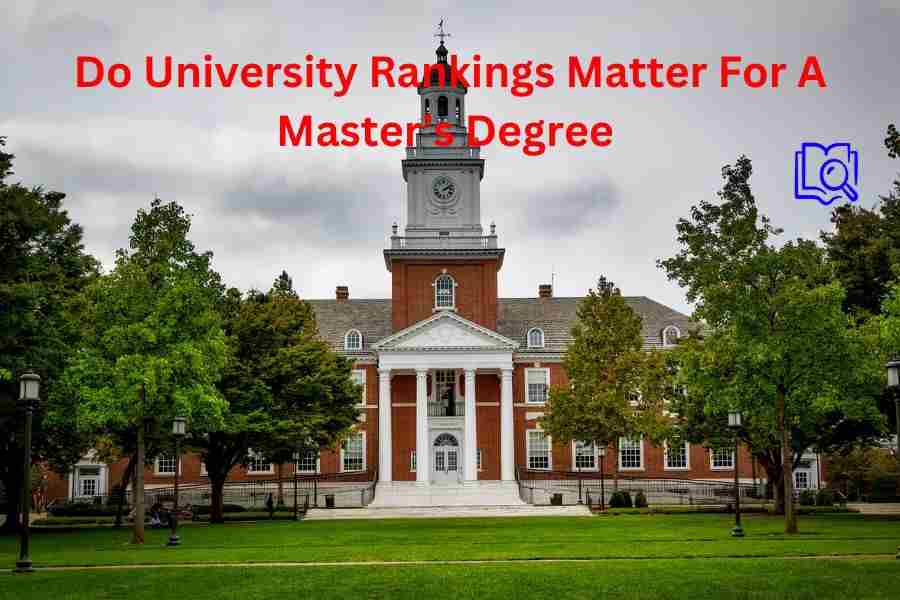Last updated on June 14th, 2025 at 06:41 am
In the absence of a grading system, evaluating easy master’s degrees can be subjective as it depends on individual preferences, strengths, and weaknesses.
Evaluating 16 Easy Master’s Degrees
I have rated 16 relatively easy master’s degrees based on the following three factors:
1. Simple & Stress-Free Enrollment
- Affordable tuition – Quality education without the financial burden.
- High acceptance rates – Your path to a master’s degree is within reach.
- No GRE/GMAT required – Skip the stress of standardized tests.
2. Flexible & Manageable Completion
- Fast-track and online options– Finish on your schedule at your own pace.
- Real-world skills over theory– Learn what you’ll use in your career.
- Minimal fieldwork or internships – More convenience, less hassle.
3. Strong Career Advantages
- High industry demand – Employers are actively seeking master ‘s-level professionals.
- Higher earning potential – Command an above-average salary with your degree.
The 16 easiest master’s degrees described below are not ranked in strict order of ease, but rather take into consideration various factors that contribute to their reputation for being less demanding while still featuring among the most in-demand master’s degrees. Some of these degrees are also among the best for the future.
Relevant Sources:
The Princeton Review: Best Master’s Degrees
Table of Contents
1. Master’s In Education
Overview
A Master’s Degree in Education (M.Ed.) focuses on advanced pedagogical techniques, educational psychology, and curriculum development. This degree is designed for those who aspire to become educational leaders or enhance their teaching skills.
Common Career Paths
Graduates often pursue roles as advanced educators, curriculum developers, educational consultants, or school administrators.
Coursework and Expectations
Typical courses include educational theory, instructional design, classroom management, and assessment strategies. The coursework is designed to be practical and directly applicable to educational settings.
Pros and Cons
Pros: High demand for educators, flexible program formats, and practical application of skills.
Cons: May require teaching experience for admission, and can involve dealing with bureaucratic educational systems.
2. Master’s Liberal Arts
Overview
A Master’s degree in Liberal Arts offers a broad-based education in the humanities, social sciences, and natural sciences, providing a well-rounded academic experience.
Career Opportunities
Graduates can pursue careers in writing, public relations, non-profit management, and various administrative roles.
Typical Coursework
Courses are diverse and may include history, philosophy, sociology, literature, and more, allowing students to tailor their education to their interests.
Pros and Cons
Pros: There is a wide range of subjects to choose from that promote the development of critical thinking skills.
Cons: Broad focus may require additional specialization for certain careers.
3. Master’s In Communications
Overview
This master’s degree emphasizes media studies, communication theory, and public relations, preparing students for various roles in the communications field.
Career Paths
Graduates often find roles in media, corporate communications, marketing, public relations, and digital content creation.
Coursework and Skills Learned
Typical courses include media ethics, digital communication, strategic communication, and public relations tactics.
Pros and Cons
Pros: Growing field with diverse opportunities; development of versatile communication skills.
Cons: Can be competitive, depending on the niche, and requires staying up-to-date with fast-evolving media trends.
4. Master’s In Social Work
Overview
A Master of Social Work (MSW) degree prepares students for advanced social work practice, with a focus on both clinical and community settings.
Potential Career Opportunities
Graduates can pursue careers as clinical social workers, school social workers, social work supervisors, and community service managers.
Typical Coursework
Courses cover social policy, human behavior, clinical practice, and ethics in the field of social work.
Pros and Cons
Pros: High demand for social workers; a rewarding career that helps others.
Cons: The emotional toll of working with vulnerable populations and the potential for burnout.
5. Master’s In Health Administration
Overview
This program focuses on the management and administration of healthcare systems and facilities, combining healthcare knowledge with business principles to enhance effective management.
Career Opportunities
Graduates can work as healthcare administrators, hospital managers, health services managers, and policy analysts.
Coursework and Practical Applications
Courses often include healthcare policy, financial management, healthcare law, and organizational behavior.
Pros and Cons
Pros: Growing healthcare industry, leadership opportunities, and good salary potential.
Cons: Can be demanding due to the complexity of healthcare systems and regulatory environments.
6. Master’s In Criminal Justice
Overview
Focuses on advanced topics in criminal justice, law enforcement, and criminology, preparing students for leadership roles in the field.
Career Opportunities
Roles include criminal justice administrator, policy analyst, law enforcement officer, and forensic analyst.
Typical Coursework
Courses include criminal law, criminology, forensic science, and law enforcement management.
Pros and Cons
Pros: Diverse career opportunities; impactful work in law enforcement and public safety.
Cons: Can involve high-stress environments and potential exposure to challenging situations.
7. Master’s In Public Administration
Overview
A Master’s degree in Public Administration (MPA) prepares students for careers in public sector management, policy analysis, and governance.
Career Paths
Graduates can work as policy analysts, city managers, public affairs specialists, and leaders in the non-profit sector.
Typical Coursework
Courses typically include public finance, organizational theory, public policy, and management.
Pros and Cons
Pros: broad applicability in government and nonprofits, as well as opportunities for leadership roles.
Cons: May require an understanding of complex bureaucracies and political environments.
8. Master’s In Marketing
Overview
This master’s degree focuses on advanced marketing strategies, consumer behavior, and digital marketing, preparing students for dynamic roles in the marketing field.
Career Opportunities
Roles include marketing manager, brand strategist, digital marketing specialist, and market research analyst.
Coursework and Skills Developed
Typical courses include market research, advertising, brand management, and digital marketing.
Pros and Cons
Pros: A creative and dynamic field with numerous opportunities across various industries.
Cons: High pressure to achieve results and need to constantly adapt to market changes.
9. Master’s in Human Resources
Overview
Covers topics related to employee management, organizational behavior, and labor laws, preparing students for strategic roles in human resources.
Career Paths
Jobs include HR manager, training and development manager, and HR consultant.
Typical Coursework
Courses include human resource management, labor relations, organizational development, and employee training.
Pros and Cons
Pros: Essential role in all industries, focus on people management, and good job stability.
Cons: Can involve challenging employee relations issues and managing conflict.
10. Master’s in Fine Arts
Overview
A creative degree focusing on visual arts, writing, performing arts, and other creative disciplines.
Career Opportunities
Graduates can pursue careers as professional artists, writers, performers, or educators in the arts.
Coursework and Creative Development
Courses are hands-on, incorporating studio work, creative writing workshops, and performance practice, all of which foster artistic growth.
Pros and Cons
Pros: Encourages creativity and artistic expression, providing opportunities to work in various artistic fields.
Cons: May not lead directly to high-paying jobs, given the competitive nature of the arts industry.
11. Master’s in Organizational Leadership
Overview
It focuses on leadership skills, organizational dynamics, and strategic planning, preparing students for leadership roles in various sectors.
Career Opportunities
Roles include organizational development manager, leadership consultant, and executive coach.
Typical Coursework
Courses often cover leadership theory, organizational behavior, change management, and strategic planning.
Pros and Cons
Pros: Valuable in various industries, developing soft skills is essential for effective leadership.
Cons: May require additional certifications or experience for specific leadership roles.
12. Master’s in Library Science
Overview
Prepares students for careers in library and information science, with a focus on the organization and management of information.
Career Paths
Common roles include librarian, archivist, information specialist, and digital librarian.
Coursework and Skills
Courses include cataloging, information retrieval, digital libraries, and archival management.
Pros and Cons
Pros: Stable career options; focus on organization and information management.
Cons: Limited to specific career paths and may require additional certifications.
13. Master’s in Psychology
Overview
Covers advanced topics in psychological theory, research, and clinical practice, preparing students for various roles in the psychology field.
Career Opportunities
Roles include clinical psychologist, counselor, researcher, and organizational psychologist.
Coursework and Practical Experience
Courses cover developmental psychology, cognitive behavior, clinical practice, and research methods.
Pros and Cons
Pros: High demand for mental health professionals; rewarding and impactful career.
Cons: Requires extensive study and practical experience; potential emotional challenges.
14. Master’s in Journalism
Overview
Focuses on advanced journalism practices, ethics, media studies, and digital reporting.
Career Opportunities
Jobs include investigative journalist, editor, media consultant, and digital content creator.
Typical Coursework
Courses include news writing, media law, multimedia journalism, and investigative reporting.
Pros and Cons
Pros: Dynamic and exciting field, opportunities for creativity, and impactful storytelling.
Cons: A competitive industry often requires strong networking and portfolio development.
15. Master’s in English
Overview
It focuses on advanced literary analysis, mastering academic writing skills, and critical thinking, preparing students for various roles in academia and beyond.
Career Paths
Careers include teaching students the importance and benefits of academic writing, as well as editorial roles and content creation.
Coursework and Literary Analysis
Courses include literature, composition, rhetoric, and critical theory, enhancing analytical and writing skills.
Pros and Cons
Pros: Develops strong writing and analytical skills and diverse career opportunities.
Cons: Certain careers, such as teaching, may require additional qualifications or experience.
16. Master’s in Public Health
Overview
Prepares students for careers in public health management, policy, and practice, with a focus on enhancing community health outcomes.
Career Opportunities
Roles include public health manager, epidemiologist, health educator, and policy analyst.
Coursework and Practical Applications
Courses cover epidemiology, health policy, community health, and biostatistics, with an emphasis on practical applications.
Pros and Cons
Pros: Growing field with significant impact on community health; diverse career opportunities.
Cons: Requires an understanding of complex health issues and systems, as well as the potential for demanding workloads.
FAQs on Easy masters Degrees
What is the easiest master’s degree to get online?
The easiest master’s degree to obtain online often depends on your background and interests. Still, some commonly cited programs include the Master of Education (M.Ed.), the Master of Business Administration (MBA) with a focus on general management, and the Master of Arts in Liberal Studies.
How do I choose a master’s degree that’s easy and still valuable?
To choose a master’s degree that is both easy and valuable, consider the following factors:
Personal Interests: Select a program that aligns with your passions to maintain motivation and engagement.
Career Goals: Ensure the degree equips you with relevant skills and knowledge for your desired career path.
Program Flexibility: Look for programs with flexible schedules, online options, and manageable coursework.
Accreditation: Choose accredited programs to ensure the degree is recognized and respected by employers.
Alumni Success: Research the success rate of graduates in terms of employment and career advancement.
Are there master’s programs that don’t require a thesis?
Yes, there are many master’s programs that don’t require a thesis. Instead, these programs might offer a capstone project, comprehensive exams, or practical experiences such as internships. Examples of such programs include the Master of Business Administration (MBA), the Master of Public Administration (MPA), and the Master of Education (M.Ed.).
Conclusion
Choosing an “easy” master’s degree is a highly personal decision that depends on individual interests, strengths, and career goals. While some programs might be perceived as less challenging due to their coursework or flexible formats, they still provide valuable skills and knowledge applicable to various career paths.
Whether you’re passionate about education, communications, social work, or any other field, there’s a master’s program that can align with your aspirations while accommodating your need for a manageable workload. Ultimately, the value of a master’s degree is best determined by how well it aligns with your personal interests and professional objectives.




